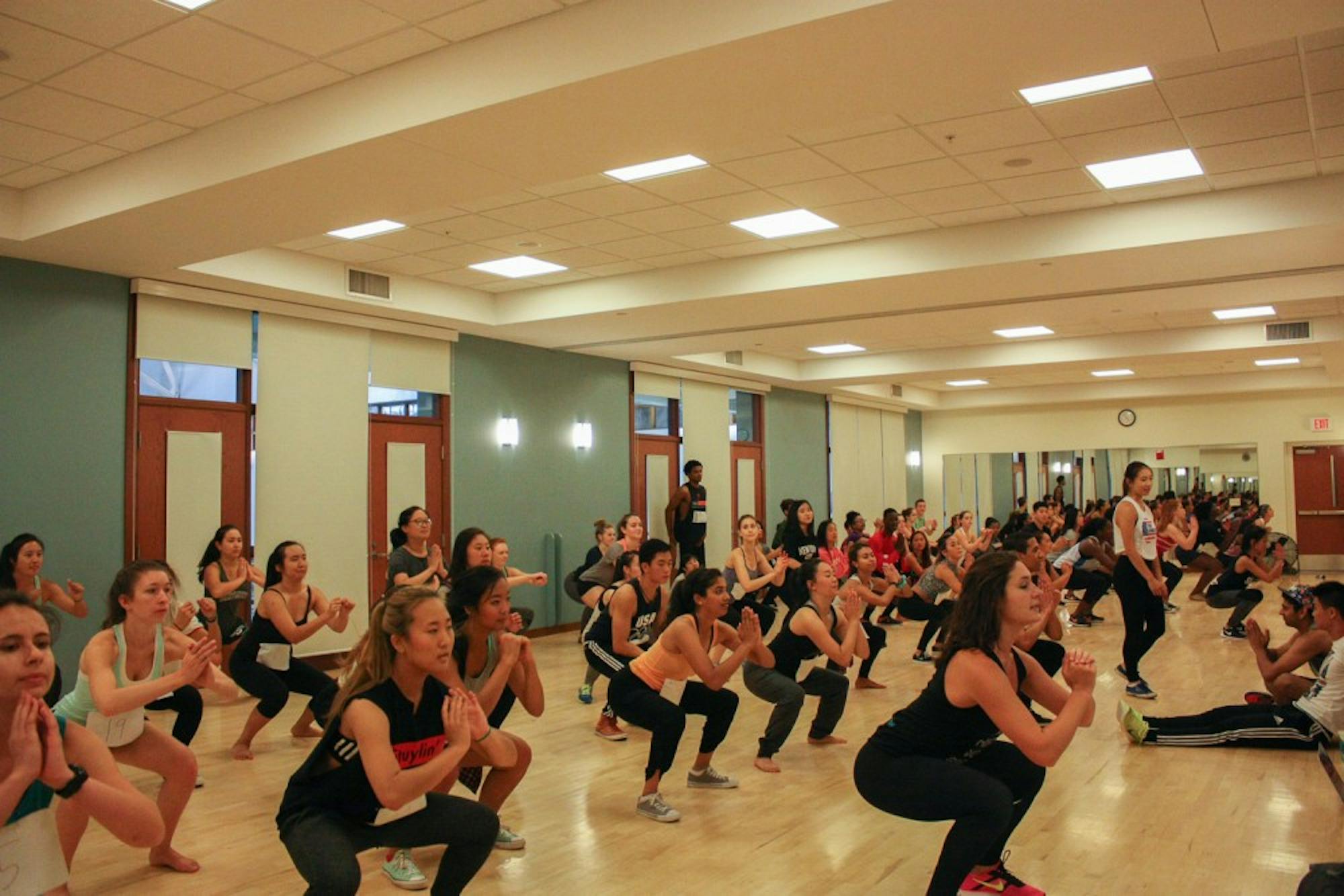They begin early, before noon and go late into the night. Sometimes, decisions are not made until the sun rises on Monday.
Over the weekend, students had the opportunity to audition for performance groups. While dance groups held group auditions, a cappella groups held both individual and group auditions.
Leading up to the auditions, groups held a variety of events for freshmen who were interested, such as ice cream socials and open rehearsals.
Shany Sun ’16, the co-director of Sugarplum, said that Sugarplum chose to host group auditions with Fusion, SHEBA and Ujima to give first-years more options. The auditions for dance groups lasted from 12 p.m. to 7 p.m.
“The reason we do it is so that the freshmen who are interested in dance get to get a feel of every single group and what their style is,” she said.
SHEBA member Desmond Fambrini ’16 said that first-year students have to audition for all four groups.
For dance auditions, hopefuls have the option to perform 30 seconds of their own choreography, or to freestyle. Fabrini said that the dance groups hold three rounds of auditions—a first round where auditionees perform a dance from each team, a second round where first year students perform a solo for all the groups and the final callback round.
David Clossey ’16, the Aires’ business manager and the organizer of this year’s auditions, said that five a cappella groups participated in men’s auditions this year — three all-male groups, the Aires, the Brovertones and the Cords, and two co-ed groups, the Dodecaphonics and the Sing Dynasty. He said that 50 men participated in male auditions.
Clossey said that each group takes around four to six new members each year, but there is no set quota.
He said that the auditions begins at 10 a.m. He said that for male a cappella groups, the process is comprised of three rounds — the first round tests potential members’ pitches and ranges, the second round gives auditionees an opportunity to sing both solos and a supplemental role for all the groups and the third round is the callback round. Female a cappella auditions are also made up of multiple rounds and involve auditionees ranking the groups.
He said that the first and second rounds give members a chance to feel comfortable and showcase their voices, while creating a standard process so that groups have an easier time comparing people who audition.
Clossey said that after the second round, all the groups and auditionees move to the Bentley Theater in the Hopkins Center to watch each group perform and speak about their group.
“It’s a way for the auditionees to think about which group they want to be in and make an informed choice,” he said.
In the Aires, there is a tradition that the group’s current musical director gives the speech introducing the group, Clossey said.
“It’s very special for [musical director Nikhil Arora ’16],” he said. “It’s all about how much the groups mean to him. He’s gotten to hear the speech three years, as an auditionee, as a sophomore and as a junior, and he gets to share it.”
Clossey said that the groups then spend about two hours deliberating which students they want to call back. He said that the final round usually begins around midnight. During the callbacks, potential members must choose which group’s callback they want to attend.
“It’s like early decision for colleges,” he said. “That’s how we explain it to them.”
Clossey said that each group does callbacks slightly differently — the Aires have potential members learn one song of the Aires’ repertoire and sing one part with three of the Aires current members. He said that the Aires use this process to see how potential members’ voices blend with current members.
He said that the Aires tend to have decided who their new members are by around 3:30 a.m. the next morning. He said that the Aires’ deliberations must be unanimous, although that varies from group to group.
After the new members are selected, the process for the Aires is still not over. Clossey said that the group picks “Aires names” for the new member, which have an etymology based on things such as the member’s audition song. He said that “Aires names” are important to the group.
“We call each other by our names all the time,” he said. “I don’t think I’ve been called ‘David’ by the Aires since I joined.”
He said that the group then wakes up new members by singing the song “Somewhere” (1957) from the musical “West Side Story” to them. He said that the group first performed the song in 1966 and rarely performs it in public.
Clossey said his favorite part of the audition process is getting to know potential members.
“Some kids have no experience and can’t even read music, and some have been in an a cappella groups for four years in high school,” he said. “It’s a real cross section of campus. It’s a wide spectrum of kids.”
Sun said that her favorite part of the audition process is getting to watch first-years’ excitement at getting to interact with the different groups and figure out which group fit their styles.
Clossey said that the hardest part of the audition process is it’s length.
“It’s a really drawn-out affair,” he said.
Sun said that for Sugarplum, the auditions are about more than just figuring out who the new members of the group are going to be.
“The hardest part is obviously deciding who we want in our group, but more than that it is deciding what we want our standard to be for that year,” Sun said.
Fambrini said that this year was the hardest for choosing members because the level of talent on display.
“It was obnoxious how good they were,” he said. “We were upset because everyone was so good.”




